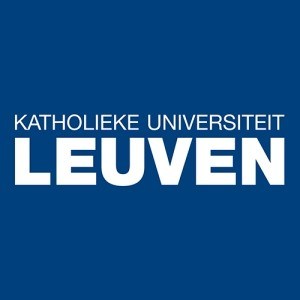Photos of university / #kuleuven
The Doctoral Programme in Bioscience Engineering at KU Leuven offers a comprehensive and rigorous research-oriented education designed to prepare students for leadership roles in academia, industry, and societal applications related to biosciences. This doctoral track provides an interdisciplinary environment where students can engage in innovative research projects spanning various fields such as molecular biology, biochemistry, microbiology, ecology, and bioprocess engineering. Throughout the programme, doctoral candidates work closely with expert supervisors to develop advanced scientific skills, critical thinking abilities, and a deep understanding of their specific research areas. The training emphasizes not only technical expertise but also scientific communication, project management, and ethical considerations in research, ensuring that graduates are well-equipped to contribute meaningfully to the advancement of biosciences. The programme also encourages international collaboration and offers opportunities to participate in conferences, workshops, and mobility exchanges to broaden research perspectives. Candidates typically undertake original research that contributes new knowledge to the field, culminating in a doctoral thesis that is defended before a committee of experts. The university provides state-of-the-art laboratories, research facilities, and a stimulating academic community that supports innovation and excellence in research. Graduates of this programme are qualified to pursue careers in academic research, industry R&D, or policy-making, with a strong foundation for further academic publishing and technological development. The doctoral programme fosters an environment of academic integrity, creativity, and lifelong learning, aligning with KU Leuven’s commitment to academic excellence and societal impact in biosciences.
Doctoral training takes first and foremost place in the research group or laboratory via informal and formal meetings with the supervisor and peer researchers. This research-based training is complemented by more structured training activities organized by the departments, the research centres and the doctoral school. PhD researchers are expected to complete the PhD within 4 years.
The doctoral training consists of three components:
- Development of essential research skills by carrying out an individual research project resulting in high-quality scientific output.
- Thematic training comprising advanced courses, invited lectures, journal clubs and doctoral seminars focused on a specific scientific topic;
- Training and development of personal skills that are relevant for the successful completion of the PhD and which prepare the PhD researcher for a wide range of career possibilities.
Requirements
- The applicant should either hold a master's degree that is relevant with respect to the PhD degree that is envisaged (or an equivalent degree of higher education) and have distinguished himself/herself, either during his/her academic training or in his/her professional life, as is evident from high-quality scientific publications;
- Or have passed the pre-doctoral examination.
- Students should submit a satisfactory score on an internationally recognized test of English language proficiency: TOEFL (minimum score 575 paper-based, 233 computer-based, 90 internet-based), IELTS (minimum score 7). No other proficiency tests will be accepted.
The Doctoral Programme in Bioscience Engineering at KU Leuven offers a comprehensive financing structure designed to support its doctoral researchers throughout their academic journey. Funding for doctoral studies at KU Leuven is typically guaranteed through various sources, ensuring that students can focus entirely on their research without financial concerns. Most doctoral candidates are funded through employment as research assistants, which includes a salary that covers living expenses and social benefits. These positions are often supported by research grants obtained by supervising professors from national and European funding bodies, such as the Flemish Research Foundation (FWO), European Research Council (ERC), or other public and private funding agencies.
In addition to employment-based funding, the program may offer fellowships, scholarships, or stipends specifically dedicated to doctoral students. These are sometimes awarded based on merit or research proposals and are typically managed through the university's scholarship office or external partnerships. KU Leuven also encourages its doctoral researchers to apply for fellowships and grants during their studies to supplement their income and facilitate international research exchanges or conference participation.
Students may also benefit from institutional support programs, including mobility grants for participation in international conferences and training workshops designed to enhance research skills and career development. The university’s policy aims to promote financial stability, research excellence, and international mobility for its doctoral candidates. It’s important for prospective students to consult with their supervising professors and departmental offices for precise funding opportunities related to their specific research projects, as availability and criteria may vary year by year.
While the program provides a solid financial framework, students are also encouraged to seek external funding sources, including European Union grants like Marie Skłodowska-Curie Actions, national scholarships, and industry partnerships that support research and innovation in biosciences. Overall, the KU Leuven Doctoral Programme in Bioscience Engineering offers a structured and diverse array of financial opportunities designed to support high-quality research and academic success, ensuring that doctoral researchers can dedicate their efforts fully to advancing knowledge in bioscience engineering.
The Doctoral Programme in Bioscience Engineering at KU Leuven is a comprehensive and research-intensive program designed to cultivate highly specialized scientists capable of making significant contributions to the field of bioscience engineering. This doctoral track is embedded within the Faculty of Bioscience Engineering, which is renowned for its multidisciplinary approach combining biology, technology, and engineering principles to solve complex problems related to agriculture, environment, food production, and biotechnology.
Students enrolled in this program typically engage in rigorous coursework during the initial phase of their doctoral trajectory, which provides a solid foundation in advanced bioscience concepts, research methodologies, and innovative engineering technologies. The core curriculum emphasizes developing critical thinking, experimental design skills, data analysis, and scientific communication. These courses are complemented by specialized seminars, workshops, and colloquia that keep students abreast of current trends and breakthroughs in bioscience engineering.
A hallmark of the doctoral program is the emphasis on independent research, which is tailored to the student's specific interests within the broad spectrum of biosciences. Supervised by leading academics and industry experts, students are expected to formulate original research questions, design experiments, and generate novel insights that contribute to scientific knowledge and practical applications. The research is often conducted in state-of-the-art laboratories equipped with cutting-edge technology, ensuring high-quality results and innovation.
Throughout their doctoral studies, students are encouraged to participate in international conferences, publish their findings in reputable scientific journals, and collaborate with industry partners. These activities enhance their professional profile and prepare them for careers in academia, research institutes, and the biotech industry. Additionally, the program fosters the development of transferable skills such as project management, grant writing, and teamwork, which are vital for a successful research career.
The program typically lasts 4 years, during which students work closely with their supervisors and thesis committees to meet milestones and complete their dissertation. The culmination of the program involves defending a doctoral thesis before a panel of experts, demonstrating the originality, scientific rigor, and significance of their research work.
Funding opportunities are available through scholarships, research grants, and institutional support, helping students to focus fully on their studies and research activities. The KU Leuven’s vibrant academic environment, extensive research infrastructure, and international partnerships provide an excellent platform for doctoral candidates to thrive and contribute meaningfully to advancements in bioscience engineering.
Overall, the Doctoral Programme in Bioscience Engineering at KU Leuven offers a rigorous, research-focused education that prepares students for innovative leadership roles in science and industry. It is characterized by a supportive academic community, cutting-edge research facilities, and a strong emphasis on scientific excellence, societal impact, and lifelong learning.

